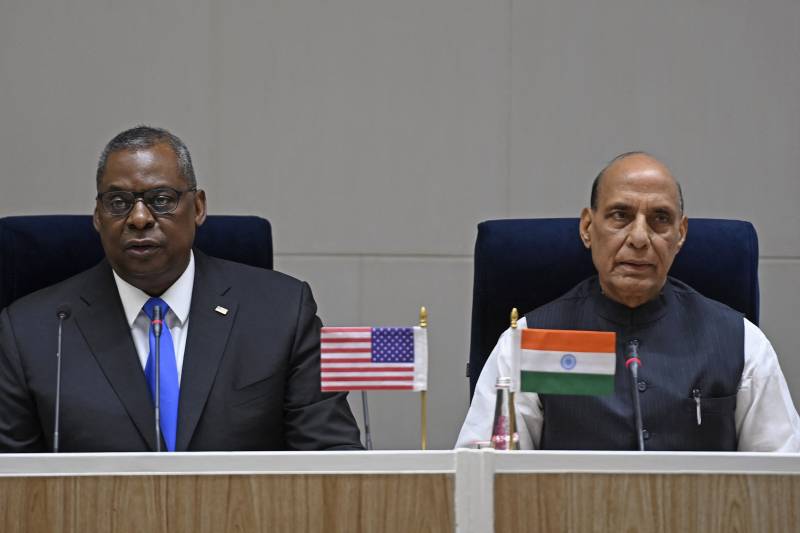China dominates Pentagon chief's first India visit

Stay tuned with 24 News HD Android App

Pentagon chief Lloyd Austin praised India's growing ties with "like-minded partners" as he held talks in New Delhi Saturday dominated by shared alarm about China.
India is a vital US partner in the Asia-Pacific region as Washington seeks to take on Beijing, and Austin's two-day trip is New Delhi's first face-to-face meeting with President Joe Biden's administration.
It follows hot on the heels of frosty US-China talks in Alaska and a visit by Austin and US Secretary of State Antony Blinken to Japan and South Korea, two other important partners irked by China.
Last week saw the first-ever summit of the leaders of the Quad, a four-way alliance of the US, Japan, Australia and India seen as a bulwark against China.
In early April the four countries' navies -- plus that of France -- are due to hold joint exercises in the Bay of Bengal.
- 'Shared goals' -
Austin arrived in New Delhi late Friday and held talks with Prime Minister Narendra Modi and National Security Adviser Ajit Doval.
Austin told Modi that he "commended India's leadership role in the Indo-Pacific and growing engagement with like-minded partners across the region to promote shared goals," Pentagon spokesman John Kirby said.
Also not mentioning China directly, Modi tweeted that "India and US are committed to our strategic partnership that is a force for global good".
Washington is keen for its partners in the region to deepen cooperation among themselves into "a network of overlapping relationships" not necessarily involving the US, a senior US official said.
To that end, Indian Foreign Minister S. Jaishankar and Australian counterpart Marise Payne will hold separate meetings with their French and Indonesian opposite numbers Jean-Yves Le Drian and Retno Marsudi in New Delhi in mid-April, the Hindustan Times reported.
Indian Defence Minister Rajnath Singh said after meeting Austin that he had agreed to "pursue enhanced cooperation with the US Indo-Pacific Command, Central Command and Africa Command".
He told reporters that New Delhi wanted "to make the Indian-US relationship one of the defining partnerships of (the) 21st century".
Austin called India a "central pillar of our approach to the region", hailing the two nations' "shared values and converging strategic interests".
- Historically prickly -
Austin was due to meet Jaishankar later on Saturday.
He may raise the question of human rights in India, with a second senior US official calling the issue "an important part of the Biden administration defense and foreign policy".
US-Indian relations have historically been prickly but China's growing assertiveness pushed them closer together under Modi and former US president Donald Trump.
This accelerated after 20 Indian soldiers and four Chinese troops died last June in a clash on their disputed border high in the Himalayas.
The nuclear-armed Asian giants then sent thousands of extra troops to the frontier, although tensions have eased somewhat with a pull-back from one area of contention.
Beijing has irked New Delhi with its support for arch-rival Pakistan, as have Chinese investments in Indian Ocean nations that India sees as its backyard.
India and China have also engaged in a tussle of "vaccine diplomacy", competing to supply other countries with coronavirus shots to secure goodwill and influence.
- 'Major Defense Partner' -
In 2016, the United States designated India a "Major Defense Partner", and they have since signed a string of deals easing the transfer of advanced weaponry and deepening military cooperation.
US defence firms have inked billions of dollars in deals to supply military hardware, including helicopters, under India's $250 billion modernisation of its armed forces.
But Russia is India's biggest arms supplier and New Delhi agreed in 2018 a $5.4 billion purchase of Moscow's S-400 missile defence system, even though this could lead to US sanctions.
Austin's visit so soon after Biden took office "shows the priority Washington is assigning to New Delhi", Manoj Joshi from India's Observer Research Foundation told AFP.
